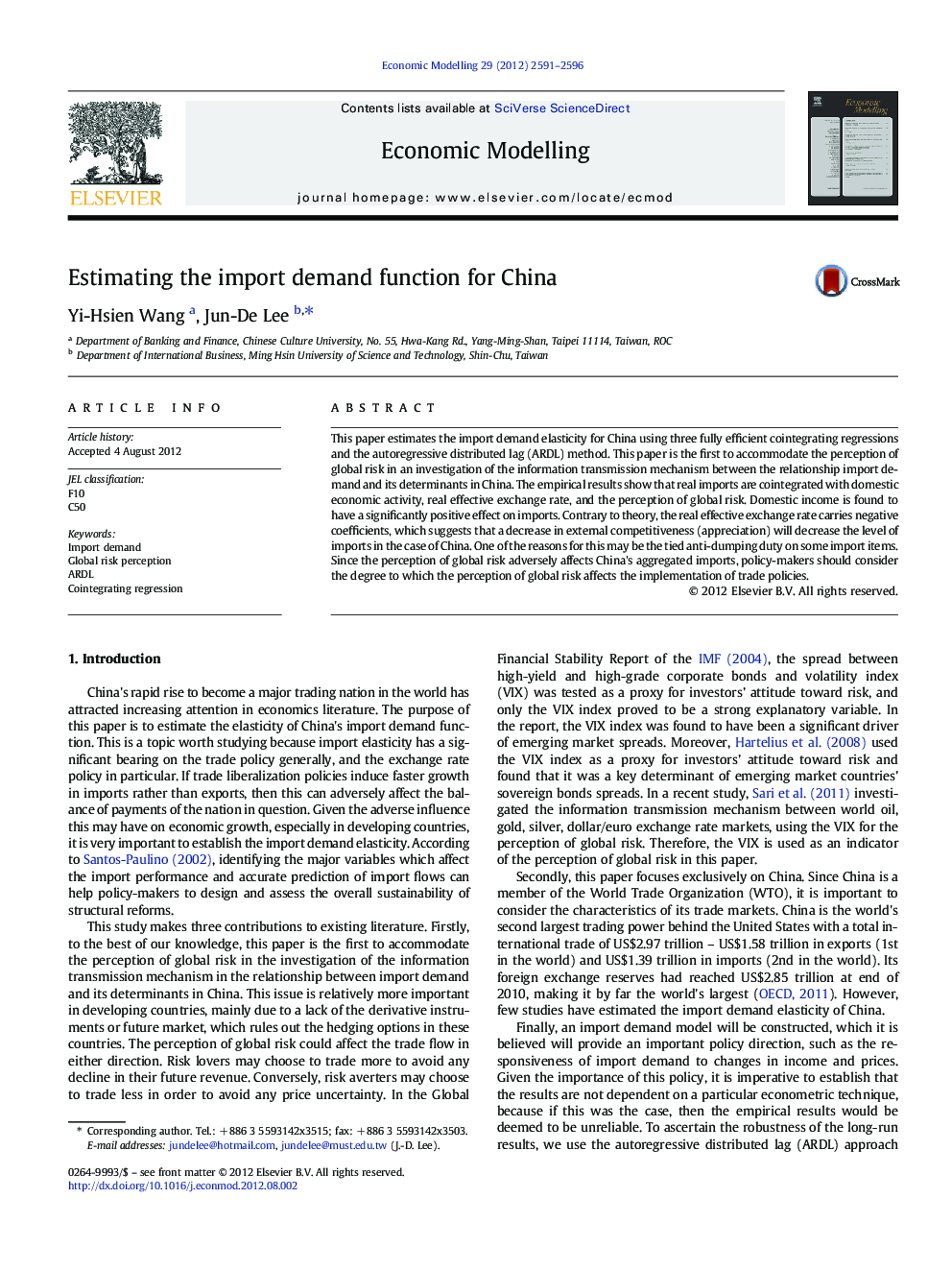| Article ID | Journal | Published Year | Pages | File Type |
|---|---|---|---|---|
| 5055111 | Economic Modelling | 2012 | 6 Pages |
This paper estimates the import demand elasticity for China using three fully efficient cointegrating regressions and the autoregressive distributed lag (ARDL) method. This paper is the first to accommodate the perception of global risk in an investigation of the information transmission mechanism between the relationship import demand and its determinants in China. The empirical results show that real imports are cointegrated with domestic economic activity, real effective exchange rate, and the perception of global risk. Domestic income is found to have a significantly positive effect on imports. Contrary to theory, the real effective exchange rate carries negative coefficients, which suggests that a decrease in external competitiveness (appreciation) will decrease the level of imports in the case of China. One of the reasons for this may be the tied anti-dumping duty on some import items. Since the perception of global risk adversely affects China's aggregated imports, policy-makers should consider the degree to which the perception of global risk affects the implementation of trade policies.
⺠Accommodate the perception of global risk in the import demand function. ⺠Using three fully efficient cointegrating regressions and the ARDL method. ⺠Global risk affects the implementation of trade policies.
